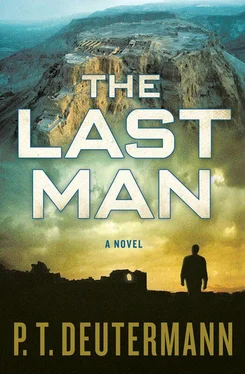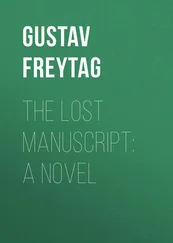“Your uncle sounds interesting,” she said, stopping to dump small stones out of her shoes.
“He is. He works at the Nuclear Regulatory Commission in Washington. He always told me to go to work for the government.”
“For the security?”
“Not quite. He used to say he worked in order to play. You know, the fat man who lives to eat versus the thin man who eats to live? He once told me that he worked for the government because, if you wanted it that way, it was just a job, not really a career. Do your job, eight to four thirty, and then resume your real life. Careerists bring it home with them.”
“And university?”
“Went to my local state university in Maryland. Took a degree in chemical engineering, minor in physics. Uncle Jack got me a starter job at the NRC. Damn! This place stinks.”
“Yes, it gets stronger in the late afternoon. There is geothermal activity along here. Cooks the chemicals. There are big salt mines farther south. Did you have to do national service?”
“No. It’s not like here, where everyone must serve. I thought about it, but they told me I’d have to serve in nuclear submarines, and I didn’t want that.”
They entered a clearing where suddenly the stink of chemical salts went away, and they stopped to breathe clear air. He looked back at the looming mountain fortress, which was subsiding into even deeper shadow as the sun went down.
He kicked a rock down onto the beach, where the sand was so hard it skittered all the way to the water. She had certainly warmed up this afternoon, but he wanted to stop talking about himself.
“You called yourself Mrs. Ressner,” he said. “What does your husband do?” Having spoken to Ellerstein, he already knew the answer, but pretended not to.
She looked away. “I am a widow, Mr. Hall. My husband died five years ago. I have never remarried.”
“I’m sorry,” he said automatically, feeling like a heel.
“For what? You haven’t done anything. Or do you mean you feel sorry for me?”
Oh, hell, he thought, here we go. Miss Attitude is back. “It’s just an American expression. Of sympathy. Someone loses his or her spouse, we presume they’re sorry, too. How long ago did you say?”
She took a minute to reply and turned around to start walking back toward the hostel. “Almost five years. And, yes, I am sorry. Perhaps too much so. My life has not been very good since then, and that has created some problems.” She told him about the chairman’s ultimatum and the reasons behind it. David frowned. Ellerstein hadn’t mentioned any ultimatum.
“Wow,” he said. “Decision time. All this because you elected to withdraw from social life for a while? To live alone? I should think that was your option.”
“Thank you, yes, so did I. Apparently I’ve overdone it. I’ve kept myself immersed in my work, which is easy enough to do. Historical linguistics is an introspective business, but I think I have given cultural offense to the collegial community.”
“What about the rest of your life?” he asked. “Do you get out at all, or are you just holed up in an apartment somewhere and calling it life?”
She gave him a curious look, her head tilting to one side. “Who have you been talking to, Mr. Hall?”
“Nobody, Mrs. Ressner,” he said. “I’ve met people in your situation before, although I must admit they were all men. What happened to your husband, if I may ask?”
She sighed. “He died in an accident of some kind at the place where he worked. He was a scientist.”
David took a gamble. “An accident of ‘some kind’? That sounds as if you don’t know exactly what happened.”
She turned to face him. “He worked at Dimona. You’re a nuclear engineer from Washington: You know what Dimona is, don’t you? Israel’s so-called atomic power research center?”
He smiled at her. “So-called, indeed. Yes, I know what Dimona is. By reputation, anyway.”
She nodded. “The implication was that it was a radiation accident,” she said. “I–I never saw him again. He is buried out there at the site, along with some radioactive waste, no doubt. Okay? Don’t ask me anything more about it, because I don’t know anything more about it. One morning he left for the site and I was a wife. By that night I was told that I would never see him again, and, oh, by the way, now you are a widow. We have lots of those in Israel.”
She turned and walked away, her face and posture suddenly stiff. Startled by her bitter outburst, he hurried to catch up with her. He remembered Ellerstein’s equally vague description: some kind of an accident. Something bad enough that the body had not been returned to the widow. He conjured up the image of a lead-lined body bag at the bottom of a green-glowing moonpool somewhere. He understood her anger a little better.
He closed the gap and then walked by her side as they picked their way through curious crystalline formations that stood along the shore like stumps from some petrified chemical forest.
“Five years,” he said, after a few minutes. “That’s a long time to grieve. Or is that customary for the Jewish culture?”
She looked sideways at him again, as if to see if he was being sarcastic. David shook his head. “I meant that question sincerely. I’ve heard that there are some Middle Eastern cultures that do not permit a widow to remarry. I guess I’m trying to figure out why someone as attractive as you are hasn’t rejoined the world by now.”
“I forget how direct you Americans are,” she said, with a hint of exasperation in her voice. “Really, Mr. Hall. This is hardly any of your concern. Whether or not I am an attractive woman, if I choose not to rejoin the world, as you put it, that’s my business, is it not? You would not say that to a man, would you?”
“Touché,” he said. “I would not. Although I would probably still ask the underlying question. It’s always interesting to know why people do what they do. Besides, sometimes it helps to talk about it.”
“I don’t feel any particular need to talk about it, Mr. Hall. Especially with a stranger.”
“Well, forgive me, but I sense that you do. Need to talk about it, that is. If nothing else, what you’re facing on Monday morning compels you to at least think about it, and it’s safer to discuss such things with a stranger, especially one who will be gone in two weeks. As opposed to a colleague, for instance, who might have a stake in the outcome? I don’t know. If you just crawl into a hole and pull it in over you, you become compost, you know?”
She kept walking, not answering him, her head down now, concentrating on picking her way through the scraggly underbrush in the fading light. Finally she stopped.
“What of you, Mr. Hall? You were in love, yes, with this Adrian? Then she disappears. Are you ‘back in the world’?”
“Well, I’m here,” he said. Once again he suddenly wanted to tell her the real reason he was here.
“So you are,” she said.
He pressed on. “And, yes, we’re having this conversation because I’m interested in you. You’re a beautiful woman, still young, and smart enough to hold a Ph.D. from a prestigious university.”
More silence. Then, finally, softly, “So — what about Adrian? She is, what, forgotten now?”
He swore, loud enough to startle her. “We’re in the same boat, Mrs. Ressner. You don’t know what happened to your husband. You do know that he is — gone. I don’t know what happened to Adrian, but the probability is that she decided our relationship was over and just — left.”
“So now, what? I am potentially her replacement?”
“Oh, for God’s sake,” he exclaimed. This was getting too hard. A voice in his head was warning him to shut up, go back to the hostel, and leave this poor woman to her own devices, but he couldn’t help himself. “What I’m saying is, why not get on with your life? There must be a hundred guys right there at the university who would jump at the chance. Why waste your life?”
Читать дальше












